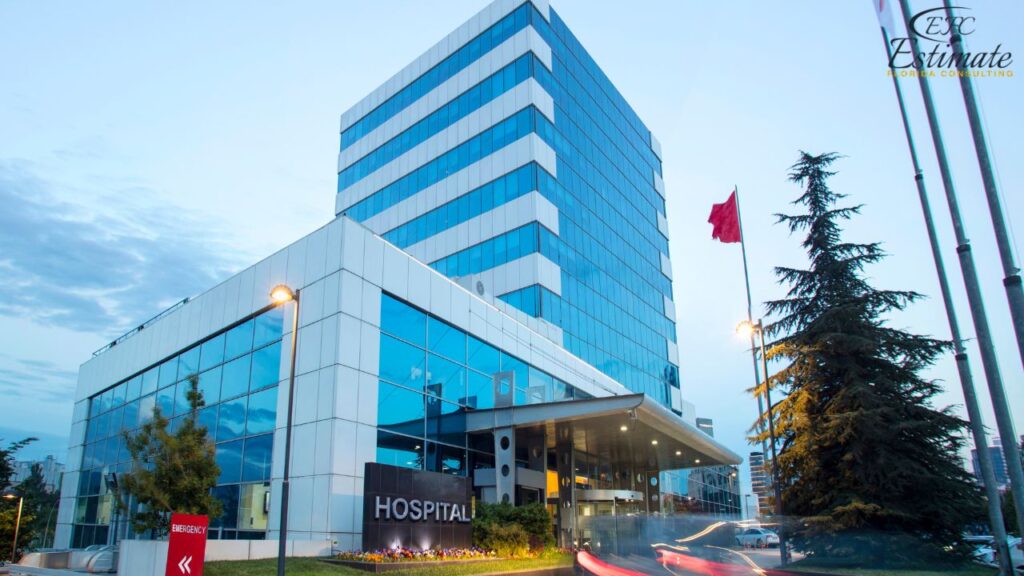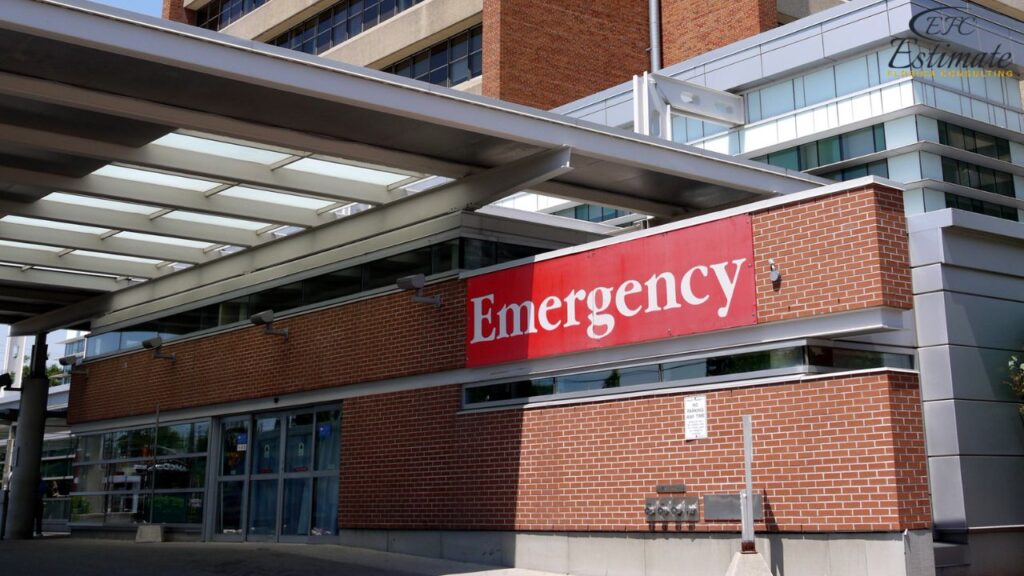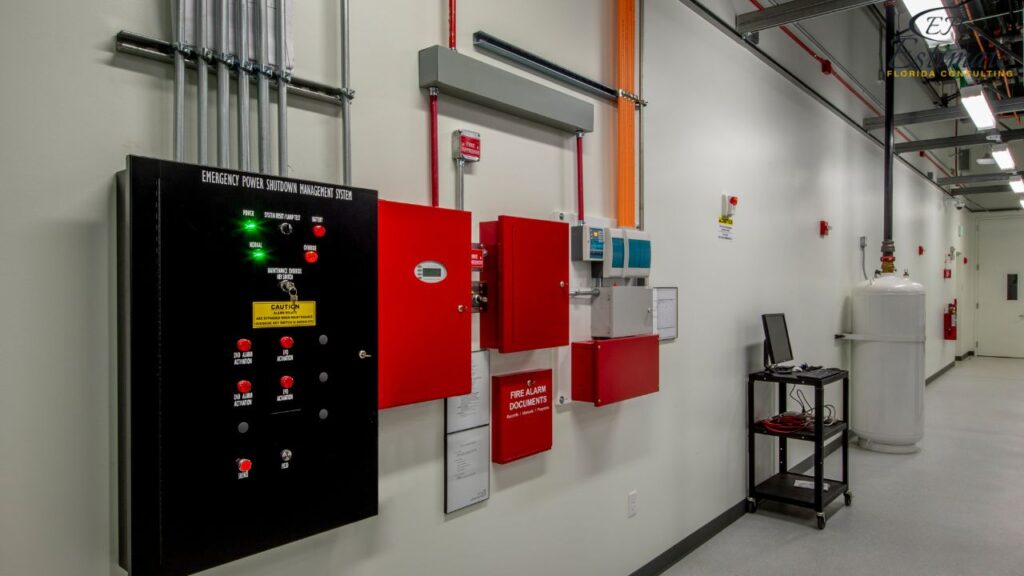Estimated Cost to Construct a Medical Office Building
Building a medical office is a significant investment that entails a multifaceted approach, involving careful planning, market research, and a thorough understanding of various cost components. The construction of a medical facility not only requires a considerable financial commitment but also demands adherence to strict regulatory and operational standards.
Factors influencing the total construction costs range from the size and location of the office to specialized design features and necessary medical equipment.

This guide aims to provide a comprehensive overview of the key elements influencing the costs associated with constructing a medical office building, helping prospective owners and investors make informed decisions.
Key Factors Influencing Cost
Location
The location of the medical office is arguably the most critical factor affecting construction costs and long-term success. Urban areas, where demand for healthcare services is often higher due to population density, typically have elevated land prices and construction expenses. Conversely, rural areas may present lower initial costs but could face challenges such as reduced patient volume and less access to skilled labor. Additionally, accessibility to public transportation and parking facilities can significantly impact patient foot traffic, which in turn affects the overall profitability of the medical office. Understanding local market trends and demographics is essential for selecting the right location.
Location Type | Estimated Land Cost per Acre | Total Estimated Cost (1 Acre) |
Urban | $2.6 million – $10.4 million | $2.6 million – $10.4 million |
Suburban | $650,000 – $2.6 million | $650,000 – $2.6 million |
Rural | $130,000 – $650,000 | $130,000 – $650,000 |
Size and Design
The size and design of the medical office have a profound impact on construction costs and operational efficiency. Larger buildings not only require more materials and labor but also necessitate careful planning regarding layout and flow to ensure patient comfort and compliance with healthcare regulations. Design elements such as waiting areas, exam rooms, procedure rooms, and administrative offices must be strategically placed to optimize patient care and staff workflow. Moreover, aesthetic considerations, such as exterior finishes and interior design, can influence initial costs but also affect patient perceptions and experience. Investing in a well-thought-out design can lead to increased patient satisfaction and better overall functionality.
Medical Office Size | Estimated Construction Cost per Sq Ft | Total Estimated Cost (5,000 sq ft) |
Small (1,500 sq ft) | $260 – $455 | $390,000 – $682,500 |
Medium (3,000 sq ft) | $325 – $520 | $975,000 – $1.56 million |
Large (5,000 sq ft) | $390 – $650 | $1.95 million – $3.25 million |
Site Preparation and Infrastructure
Before the actual construction begins, thorough site preparation is necessary to ensure the land is suitable for a medical office. This process may involve land clearing, excavation, grading, and the installation of essential utilities, such as water, electricity, and sewage systems. The extent of site preparation required will depend on the existing conditions of the land, such as previous use and geological factors. For instance, a site with an existing structure may require extensive demolition, while a lot with challenging topography may necessitate additional grading work. Understanding these requirements upfront can help prevent budget overruns and delays in the construction timeline.

Cost Component | Estimated Cost |
Site Preparation | $26,000 – $130,000 |
Infrastructure | $65,000 – $195,000 |
Get Acquainted with Medical Office Building
Construction Costs
Labor Costs
Labor costs represent a substantial portion of the overall construction budget and can vary based on the project’s complexity and the expertise required. Engaging skilled contractors, subcontractors, and specialized labor is essential to ensure compliance with healthcare regulations and the successful execution of the project. Additionally, labor availability can fluctuate based on local economic conditions and demand for construction services. Using highly qualified labor not only improves the quality of construction but also minimizes the risk of costly mistakes and rework, ultimately contributing to the timely completion of the project. Effective project management and labor scheduling can also help mitigate costs.
Labor Task | Estimated Cost per Hour | Total Hours Required | Total Cost |
General Labor | $26 – $65 | 10,000 – 20,000 | $260,000 – $1.3 million |
Skilled Labor | $39 – $104 | 5,000 – 10,000 | $195,000 – $1.04 million |
Materials
The choice of construction materials is a critical factor that significantly influences both initial costs and long-term maintenance expenses. Selecting high-quality, durable materials can enhance the longevity and performance of the medical office, resulting in lower repair and replacement costs over time. Additionally, materials must be chosen to meet health and safety standards, particularly in areas such as HVAC systems and finishes. Sustainable materials may have a higher upfront cost but can lead to significant energy savings and reduced environmental impact in the long run. Evaluating different material options and their life-cycle costs can help stakeholders make informed decisions that align with their budget and operational goals.

Material Type | Estimated Cost per Sq Ft | Total Cost (for 5,000 Sq Ft) |
Concrete | $6.50 – $13 | $32,500 – $65,000 |
Steel | $13 – $26 | $65,000 – $130,000 |
Finishing Materials | $19.50 – $39 | $97,500 – $195,000 |
Equipment and Furnishings
Medical Equipment
Outfitting a medical office with the necessary medical equipment is one of the most significant expenses that can vary widely depending on the specialty of the practice. Essential equipment such as diagnostic tools, treatment devices, and examination furniture must be selected carefully to ensure they meet both operational needs and regulatory standards. Additionally, investing in advanced technology can improve patient care and operational efficiency. For instance, incorporating electronic health records (EHR) systems can streamline administrative processes and enhance patient management. Proper budgeting for medical equipment is crucial to ensure the office is fully functional upon opening.
Equipment Type | Estimated Cost Range |
Medical Equipment | $130,000 – $650,000 |
Office Furniture | $26,000 – $130,000 |
Décor | $13,000 – $39,000 |
Download Template For Medical Office Project Breakdown
- Materials list updated to the zip code
- Fast delivery
- Data base of general contractors and sub-contractors
- Local estimators

Additional Features
HVAC and Fire Safety Systems
Incorporating advanced technology in a medical office is becoming increasingly important for improving patient care and operational efficiency. Systems such as electronic health records (EHR), telemedicine platforms, and practice management software not only enhance service delivery but also play a crucial role in patient engagement and data management. The initial costs of implementing these technologies can be significant, but they often lead to long-term savings by improving workflow and reducing administrative burdens. As healthcare becomes more digitized, investing in robust IT infrastructure and training staff to utilize these technologies effectively is essential for success.
Technology Component | Estimated Cost Range |
EHR Systems | $13,000 – $65,000 |
Telemedicine Solutions | $6,500 – $26,000 |
IT Infrastructure | $19,500 – $52,000 |
Technology Integration
Incorporating advanced technology in a medical office is becoming increasingly important for improving patient care and operational efficiency. Systems such as electronic health records (EHR), telemedicine platforms, and practice management software not only enhance service delivery but also play a crucial role in patient engagement and data management. The initial costs of implementing these technologies can be significant, but they often lead to long-term savings by improving workflow and reducing administrative burdens. As healthcare becomes more digitized, investing in robust IT infrastructure and training staff to utilize these technologies effectively is essential for success.
Technology Component | Estimated Cost Range |
EHR Systems | $13,000 – $65,000 |
Telemedicine Solutions | $6,500 – $26,000 |
IT Infrastructure | $19,500 – $52,000 |
Additional Features
HVAC and Fire Safety Systems
A well-designed heating, ventilation, and air conditioning (HVAC) system is critical for maintaining patient comfort and ensuring a sterile environment in a medical office. Fire safety measures, including alarms, sprinklers, and emergency exits, are essential for compliance with safety regulations and protecting the well-being of both patients and staff. Investing in high-quality HVAC systems not only enhances air quality and comfort but can also lead to energy savings over time. Additionally, regular maintenance and upgrades to these systems are essential for long-term performance and safety compliance.

System Type | Estimated Cost per Sq Ft | Total Cost (for 5,000 Sq Ft) |
HVAC Systems | $13 – $26 | $65,000 – $130,000 |
Fire Safety Systems | $6.50 – $19.50 | $32,500 – $97,500 |
Parking Facilities
Adequate parking facilities are a vital consideration when constructing a medical office, as they significantly impact patient accessibility and convenience. Sufficient parking can enhance patient satisfaction and encourage repeat visits, while inadequate parking may deter potential patients. Options for parking facilities range from surface lots to multi-level garages, with each option varying in cost and design complexity. Additionally, the proximity of the parking area to the main entrance of the medical office can influence patient flow and overall experience. Careful planning of parking facilities is essential to create a welcoming environment for patients and staff.
Parking Type | Estimated Cost per Space | Total Cost (for 50 Spaces) |
Surface Parking | $1,300 – $2,600 | $65,000 – $130,000 |
$19,500 – $39,000 | $975,000 – $1.95 million |
Regulatory Compliance and Permits
Navigating the regulatory landscape is a critical step in the construction of a medical office. Obtaining the necessary permits and ensuring compliance with local healthcare regulations are essential for the successful completion of the project. The permitting process can be complex and time-consuming, often requiring detailed plans and documentation to be submitted for review. Engaging professionals with expertise in healthcare construction can facilitate this process, helping to streamline permit acquisition and ensure adherence to all relevant codes. Understanding the regulatory environment is crucial for avoiding delays and ensuring the project remains on schedule and within budget.
Regulatory Component | Estimated Cost |
Permits and Inspections | $6,500 – $26,000 |
Compliance Costs | $13,000 – $39,000 |
Financing Options
Securing financing for the construction of a medical office can involve a variety of options, including traditional loans, government grants, and private investments. Understanding the different financing avenues available is crucial for successful project funding. Lenders often consider factors such as the projected cash flow from the medical office, the creditworthiness of the borrower, and the overall economic conditions when evaluating loan applications. Additionally, exploring potential partnerships with other healthcare providers or investors can also provide additional capital and support for the project. Proper financial planning and consultation with financial experts can help stakeholders identify the most suitable financing options for their specific needs.
Financing Option | Estimated Interest Rate |
Construction Loans | 4% – 8% |
Government Grants | Variable |
Private Investments | Variable |
Sustainability Considerations
Incorporating sustainable practices into the design and construction of a medical office not only benefits the environment but can also lead to long-term operational savings. Sustainable building materials, energy-efficient systems, and water conservation measures can reduce the facility’s carbon footprint and lower utility costs. Additionally, many patients appreciate environmentally friendly practices, which can enhance the reputation of the medical office and attract eco-conscious clients. Seeking certifications such as LEED (Leadership in Energy and Environmental Design) can further demonstrate a commitment to sustainability and may provide access to certain financial incentives.
Green Feature | Estimated Cost Increase |
Energy-Efficient Appliances | 17% – 34% |
Sustainable Materials | 8.5% – 25.5% |
Water Conservation Systems | 5% – 17% |
Get 5 New Leads Next 7 Days With Our System
- Multi-Family House
- Single-Faimly House
- Modern House
- Duplex
- Ranch House
- Bungalow
Long-Term Operational Costs
It is essential to consider long-term operational costs when constructing a medical office, as these expenses can significantly impact the overall financial viability of the facility. Utilities, maintenance, staffing, and insurance are ongoing costs that should be accounted for in the business plan. Efficient management of these operational costs can enhance profitability and ensure the sustainability of the medical practice. For instance, implementing energy-efficient systems can lower monthly utility bills, while effective staff management can optimize labor costs. Developing a comprehensive budget that includes these long-term expenses is critical for the success of the medical office.
Operational Cost Category | Estimated Monthly Cost Range |
Utilities | $1,300 – $3,900 |
Maintenance | $650 – $2,600 |
Staffing | $19,500 – $65,000 |
Insurance | $1,300 – $3,900 |
Conclusion
Constructing a medical office building is a multifaceted process that requires careful planning, strategic decision-making, and substantial financial investment. By considering the factors outlined in this guide and obtaining accurate estimates, stakeholders can navigate the complexities of the construction process and set the foundation for a successful healthcare facility. Proper planning and execution can lead to a well-constructed medical office that meets the needs of patients and healthcare providers, ultimately contributing to improved community health outcomes. Engaging experienced professionals throughout the construction process can further enhance the likelihood of success, ensuring that the project is completed on time, within budget, and to the highest standards of quality.
FAQs
The primary factors include location, size and design, site preparation and infrastructure, labor costs, materials, equipment and furnishings, technology integration, additional features (such as HVAC and fire safety systems), parking facilities, regulatory compliance and permits, financing options, sustainability considerations, and long-term operational costs.
Location significantly impacts construction costs due to variations in land prices, labor availability, and demand for healthcare services. Urban areas generally have higher costs compared to suburban or rural locations, which may offer lower land prices but could have challenges such as reduced patient volume.
The estimated land cost per acre varies by location type:
- Urban: $2.6 million – $10.4 million
- Suburban: $650,000 – $2.6 million
- Rural: $130,000 – $650,000
Construction costs vary by size:
- Small (1,500 sq ft): $260 – $455 per sq ft ($390,000 – $682,500 total)
- Medium (3,000 sq ft): $325 – $520 per sq ft ($975,000 – $1.56 million total)
- Large (5,000 sq ft): $390 – $650 per sq ft ($1.95 million – $3.25 million total)
- Site Preparation: $26,000 – $130,000
- Infrastructure: $65,000 – $195,000
Labor costs vary based on task complexity:
- General Labor: $26 – $65 per hour; total cost: $260,000 – $1.3 million
- Skilled Labor: $39 – $104 per hour; total cost: $195,000 – $1.04 million
Material choices significantly affect both initial and long-term costs. For example:
- Concrete: $6.50 – $13 per sq ft ($32,500 – $65,000 total for 5,000 sq ft)
- Steel: $13 – $26 per sq ft ($65,000 – $130,000 total)
- Finishing Materials: $19.50 – $39 per sq ft ($97,500 – $195,000 total)
- Medical Equipment: $130,000 – $650,000
- Office Furniture: $26,000 – $130,000
- Décor: $13,000 – $39,000
- EHR Systems: $13,000 – $65,000
- Telemedicine Solutions: $6,500 – $26,000
- IT Infrastructure: $19,500 – $52,000
Google Reviews



Process To Get Medical Office Cost Estimate Report
Here I am going to share some steps to get medical office cost estimate report.
-
You need to send your plan to us.
You can send us your plan on info@estimatorflorida.com
-
You receive a quote for your project.
Before starting your project, we send you a quote for your service. That quote will have detailed information about your project. Here you will get information about the size, difficulty, complexity and bid date when determining pricing.
-
Get Estimate Report
Our team will takeoff and estimate your project. When we deliver you’ll receive a PDF and an Excel file of your estimate. We can also offer construction lead generation services for the jobs you’d like to pursue further.

